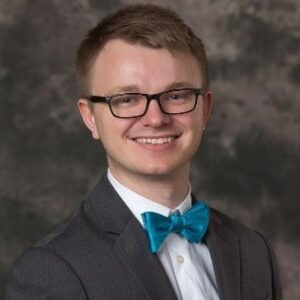After another competitive cycle of grants review, the American Academy of Audiology has closed the 2021 selection process for the Research Grants in Hearing and Balance program.
This program is funded by the American Academy of Audiology Foundation (AAAF) and managed by the Academy’s Research Initiatives Committee (RIC). Annually, the RIC reviews grant proposals in consideration for the New Investigator, Student Investigator (general), and Student Investigator Vestibular Research Awards, as well as considers applications for the Summer Research Fellowship funding.
The AAAF receives funding support from Dr. Richard Gans and the American Institute of Balance (AIB) to partially fund the Student Investigator Vestibular Research Award. The generous donations received from Dr. Gans and AIB helped to establish an initiative to promote the importance of vestibular research and to aid beginner audiology investigators in related research endeavors.
The Academy and the AAAF jointly advance the grant program to promote basic and applied research in hearing and balance by supporting early career audiologist and student investigators. The RIC chair, Ryan McCreery, PhD, director of research at Boys Town National Research Hospital, has led the committee the last several years in the grant review process and in studying the outcomes of the grant program.
Preliminary analysis of prior funding awards by the RIC shows strong correlation between the funded grant proposals and career contributions of the individual investigator to the body of knowledge for audiology.
Dr. McCreery was also instrumental in leading the RIC in conceptualizing and implementing a second research grant program, Music and Hearing Research Grant Program. Launched in 2020, this new program supports research that will protect musicians and promote best practices in audiology. Dr. Michael Santucci created a fund through the AAAF that provides the research money for the $10,000 grant award. The Academy has announced a second cycle of the program with a submission date of July 31.
The 2021 grant recipients receive awards for a one-year cycle beginning on June 1. The RIC selected three recipients for the Research Grants in Hearing and Balance Program for 2021-2022.
2021 Recipients
New Investigator Research Grant ($10,000)
| Effects of Auditory Distraction on Speech Recognition and Listening Effort | |
 |
Investigator: Samantha Gustafson, AuD, PhD Assistant Professor University of Utah Mentor: Erin Picou, AuD, PhD, Vanderbilt University |
| Purpose: The purpose of this work is to establish a paradigm for measuring the effects of auditory distraction on speech recognition and listening effort in adults. This paradigm will be adapted for use with children to launch an investigation evaluating the role of auditory distraction in complex listening in children with hearing loss.
Abstract: Most children with hearing loss are educated in mainstream classrooms and continue to lag their peers with normal hearing in areas of academic and psychosocial development. It is well-known that classrooms are busy environments filled with competing noise, reverberation, and distracting events. Although the influence of competing noise and reverberation on speech perception of children with hearing loss has been studied extensively, it is unknown how distraction-related attention shifts influence successful communication. This is a significant gap in our understanding of the mechanisms that underly successful communication in complex environments, particularly considering that children with hearing loss orient their attention to unexpected events in the classroom more than twice as much as children with normal hearing. In this study, we will implement a previously established listening effort paradigm in listening conditions that include repeated auditory distractors. This paradigm will measure the consequences of auditory distraction on speech recognition and listening effort. The proposed work will first validate this paradigm in young adult listeners in normal hearing before applying them to the study of developing listeners with and without hearing loss. |
|
Student Investigator Research Grant ($5,000)
| Auditory Effects of in utero Exposure to Highly Active Antiretroviral Therapy | |
 |
Investigator: J. Riley DeBacker, AuD PhD Student The Ohio State University Mentor: Eric Bielefield, PhD, The Ohio State University |
| Purpose: The purpose of the study is to determine the auditory risk associated with in utero exposure to the current WHO recommended and alternate highly active antiretroviral therapy regimens and their interactions with known ototoxins.
Abstract: The World Health Organization (WHO) and other non-governmental organizations have ongoing public awareness campaigns promoting the use of highly active antiretroviral therapy (HAART) in pregnant and nursing mothers to prevent the transmission of human immunodeficiency virus (HIV) to their children. Previous studies that indicated harm to the fetus due to a particular drug used in HAART led to a change in WHO guidelines for pregnant and nursing mothers, but no studies to date have analyzed the effect of these drugs on the developing auditory system, despite studies that indicate that in utero exposure to these drugs can cause mitochondrial damage that impacts the highly-energy-consumptive cochlea. This study aims to investigate the in-utero effects of currently recommended HAART drug cocktails on auditory physiology and how those drugs interact with other known ototoxins such as noise and aminoglycoside antibiotics. |
|
Student Investigator Vestibular Research Grant ($5,000)
| Magnitude Estimates of Speed of Rotation and Angular Displacement as a Function of Frequency | |
 |
Investigator: Erin Hernon, B.S.Ed Student, Aud/PhD Track James Madison University Mentor: Erin Piker, AuD PhD, James Madison University |
| Purpose: The purpose of this study is to examine the complex relationship between a physical vestibular stimulus and an individual’s subjective perception of that stimulus across a wide range of frequencies. Perceptual measures will also be compared to physiologic measures to assess associations between reflexes and perception.
Abstract: Vestibular impairments are identified through measures of vestibular reflexes such as the vestibulo-ocular reflex (VOR). However, the extent of impairment observed through the VOR may not correlate with how patients subjectively experience their symptoms. Perception of vestibular stimuli has been previously studied with a large focus on perceptual thresholds. At threshold levels of motion, perception is more sensitive at higher frequencies, consistent with the VOR as a high-pass filter. The purpose of this study is to extend previous vestibular psychophysics work by measuring magnitude estimates of angular motion across a range of suprathreshold stimuli and compare perceptual measures to the VOR in a healthy population. Vestibular stimulation will be provided with a rotary chair, and multiple experimental conditions of sinusoidal harmonic acceleration of varying frequencies, peak velocities, acceleration rates, and displacement will be used. The VOR will be recorded using videonystagmography (VNG) methods while participants provide magnitude estimates of both speed and angle of displacement. We hypothesize that magnitude estimates will be consistent with a general model of logarithmic scaling according to Steven’s Power Law. Further, we hypothesize similar effects of frequency as observed in threshold studies and weak correlations between suprathreshold perception and physiologic measures of the VOR. |
|
Related Posts
Volunteers Sought for Research Initiatives Task Force
Interested in participating in grant reviews? Want to engage with others about advancing clinical research in audiology? The Research Initiatives Task Force is looking for you! This…
Academy Welcomes New Vice President of Government Relations
On October 28, Joanne Zurcher, MPP, joined the Academy staff as the vice president of government relations and policy. In this role, Joanne will direct…
Update Your Member Profile
Keeping your member profile up-to-date is an important step in maximizing your member benefits including CEU reporting, Academy communications delivery, the Find an Audiologist Directory,…


